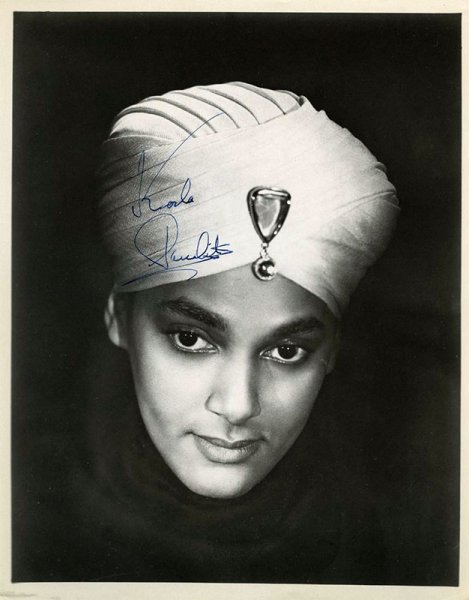15 septembre 2015 / 02 h 12 / The Indian Liberace
Before Liberace, there was Korla Pandit. He was a pianist from New Delhi, India, and dazzled national audiences in the 1950s with his unique keyboard skills and exotic compositions on the Hammond B3 organ. He appeared on Los Angeles local television in 900 episodes of his show, “Korla Pandit’s Adventures in Music”, smartly dressed in a suit and tie or silk brocade Nehru jacket and cloaked in a turban adorned with a single shimmering jewel. The mysterious, spiritual Indian man with a hypnotic gaze and sly grin was transfixing.
Offstage, Korla—known as the “Godfather of Exotica”— was living the American dream: he had a house in the Hollywood hills, a beautiful blonde wife, two kids, and a social circle that included Errol Flynn and Bob Hope. He even had his own floral-decorated organ float in the Rose Bowl parade in 1953.
Like most everything in Hollywood, it was all smoke and mirrors. His charade wasn’t his stage name—it was his race. Korla Pandit, born John Roland Redd, was a light skinned black man from St. Louis, Missouri. It was a secret he kept until the day he died.
[…] As legend has it, Korla was a child prodigy born in New Delhi to a Brahmin priest and a French opera singer. When he was 11, Korla was sent away to England and then to America for classical training at the University of Chicago.
[…] Americans fascinated with the east eagerly accepted this charming figure and his mystical interpretations due to their minimal knowledge of the Indian culture and customs—by and large, Americans were only exposed to swami stereotypes in TV and film. Which is probably why nobody disputed his fantastic story, although he was notably uncomfortable when Indian fans asked to meet him after his gigs. “He wasn’t the first person to pass as a white man in order to get ahead, he just passed as an Indian man wearing a turban,” a childhood friend remarks in the film. (Christiansen: “In hindsight, he said he was Hindu but Hindus don’t wear turbans. Sikhs do, but they don’t wear jewels on their turban.”)
It wasn’t the first time Redd had passed as something other than black—Korla Pandit was just one of his incarnations. After arriving in Los Angeles, he began playing jazz and R&B but quickly realized he could make more money playing Latin tunes as “Juan Rolando”. Passing as Mexican, he was able to join the whites-only Musicians Union. […]
The New Republic, Liesl Bradner: “How a Black Man From Missouri Transformed Into the Indian Liberace”.
